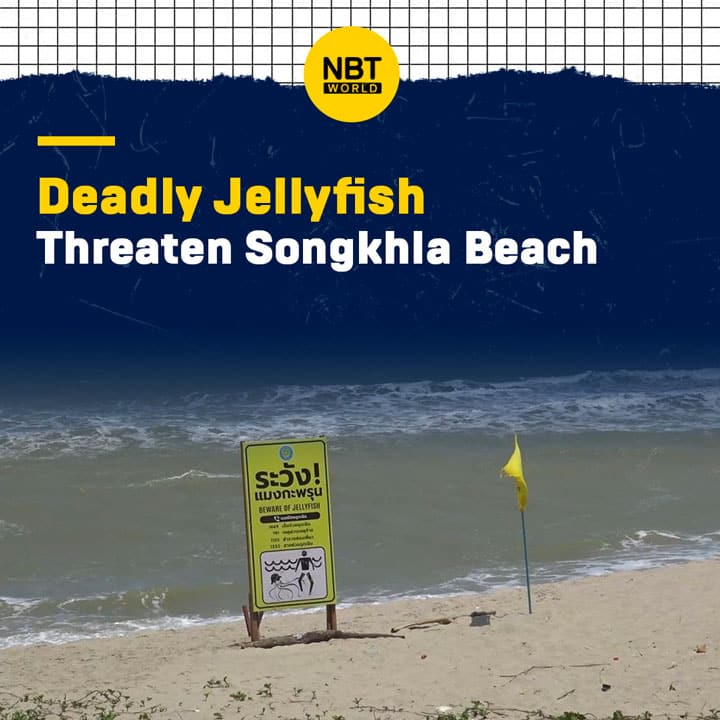Warning for deadly jellyfish along the coast at Songkhla
Travel warnings are currently in effect at Chala That Beach in Songkhla province due to recent reports of the deadly Portuguese man-of-war. These sea creatures, which resemble jellyfish, have been sighted from Singha Nakhon district to the capital district, where they have stung several tourists.
The Portuguese man-of-war is known as one of the most venomous marine animals and can cause serious injuries or even fatal reactions. In response to this threat, Wanchai Parinyasiri, the mayor of Songkhla City, has ordered lifeguards to warn beachgoers and ensure first aid kits are available. Immediate hospitalization is strongly recommended for anyone who is stung. The mayor has also advised to avoid the beach for the time being, as these animals are expected to remain in the area until early April.
The Portuguese man-of-war, also known as a siphonophore, is notable for its balloon-like floating body that can be blue, purple or pink and can extend up to 15 centimeters above the water surface. These marine animals, found in the Atlantic, Indian and Pacific Oceans, sometimes become stranded on the coasts of Thailand's southern provinces during the monsoon season. Their stings can cause serious disruptions in the nervous system and heart, leading to intense pain and in some cases even death. Beach visitors are strongly advised not to touch these animals.


